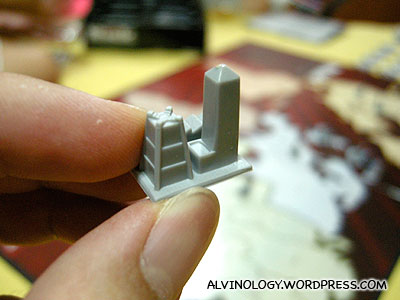Just wondering what your trying to do?
If you want to see a specific setup just load it into TripleA.
So I am sure you all have noticed how the Italian units and Russian units are the same color. We are constantly finding russians in the italian box and vice-versa. It really got bad when Italians were on the east front and totally screwed up one of our battles by fighting for the russians. It was after this occurrence that we finally figured out that the french units are actually better as italians and the brown Italians are french units.
As brown, they go much better with the tan of UK, they also do not have many units on the board so it will be hard to get them confused with Russians, but the best part is if they do get confused it won’t matter as much because they are on the same side!
With Blue italians it makes the axis fronts much easier to see, we were also thinking of adding in the Red from A&AP for the russians but that copy comes without mech inf, crusiers or Tac bombers.
I wonder if WoTC will ever figure out that they can get a bit crazy with the plastic, instead of tan/orange/brown/dark brown they can try blue/red/yellow and other colors that don’t look similar.
what about grey/green? Many of the uniforms of the era had that colouration.
Several very light coats of Krylon Fusion spray paint in a much lighter brown (for the italians) or a much redder red (for the USSR) fixes the problem entirely.
(Or just hand painting all of your pieces to look like little models … but only those of us who are insane do that)!
Several very light coats of Krylon Fusion spray paint in a much lighter brown (for the italians) or a much redder red (for the USSR) fixes the problem entirely.
(Or just hand painting all of your pieces to look like little models … but only those of us who are insane do that)!
I have tons of A&A pieces from different editions. I wouldn’t be so crazy to paint all my units, however, I confess to painting half my ICs black to represent Majors and leaving the other half gray for Minors.
For the Major/Minor issue: I ordered at Hasbro the replacement set for the Cities of Risk. Totally works as Major IC!
Order at:
http://www.hasbro.com/customer-service/orderform.cfm?sku=45086
see picture:

For the Major/Minor issue: I ordered at Hasbro the replacement set for the Cities of Risk. Totally works as Major IC!
These are amazing to use as Major’s … and cheap!
I use the Risk city pieces as major ICs too. They look great on the board.
I still use the Italian pieces from WOTC in my games. While they are somewhat close in color to the Soviet pieces, I usually have no problem telling them apart. The Italians are a plain brown while the Soviets have a reddish tint to them. I call the Soviet color maroon.
I am really looking forward to replacing my current Italian pieces with the new FMG pieces. It will be really cool for Italy to have it’s own stuff rather than brown German equipment. Once I get them, I’m not sure if I will ever use the OOB Italy pieces again.
I will admit at first we thought we could keep the two colors seperate. It wasn’t until a battle where the Italians switched sides and joined the Russians that we realized the colors are just too close together. Blue on the other hand really stands out, nobody gets confused with the new Italy pieces. Also their ships are cooler, and now their units get used past G1. Also their not running around in Tiger tanks but instead have T34s which are smaller and look sorta like Italian tanks, at least more than a King Tiger or whatever the Germans have.
FYI the germans have Panthers not tigers.
I will admit at first we thought we could keep the two colors seperate. It wasn’t until a battle where the Italians switched sides and joined the Russians that we realized the colors are just too close together. Blue on the other hand really stands out, nobody gets confused with the new Italy pieces. Also their ships are cooler, and now their units get used past G1. Also their not running around in Tiger tanks but instead have T34s which are smaller and look sorta like Italian tanks, at least more than a King Tiger or whatever the Germans have.
Are you saying that you use the french blue pieces as Italian units? I would consider that when I buy a second global game and get more pieces.
Yes, we have yet to run out of the blue pieces for Italy. Italy might run out of aircraft if you bought lots of them, but otherwise one set is fine.
I have been thinking about adding the Japanese from A&AP for the Russians(they’re red) but there’s no mech/CA/or Tac bombers.
I also have been thinking of using the Russians from A&AE, they are more red then the new ones. Still no mechs or Tac bombers:(